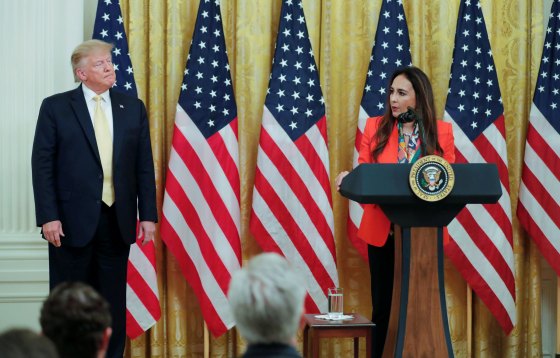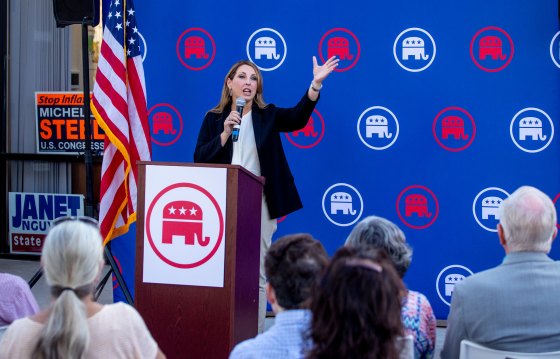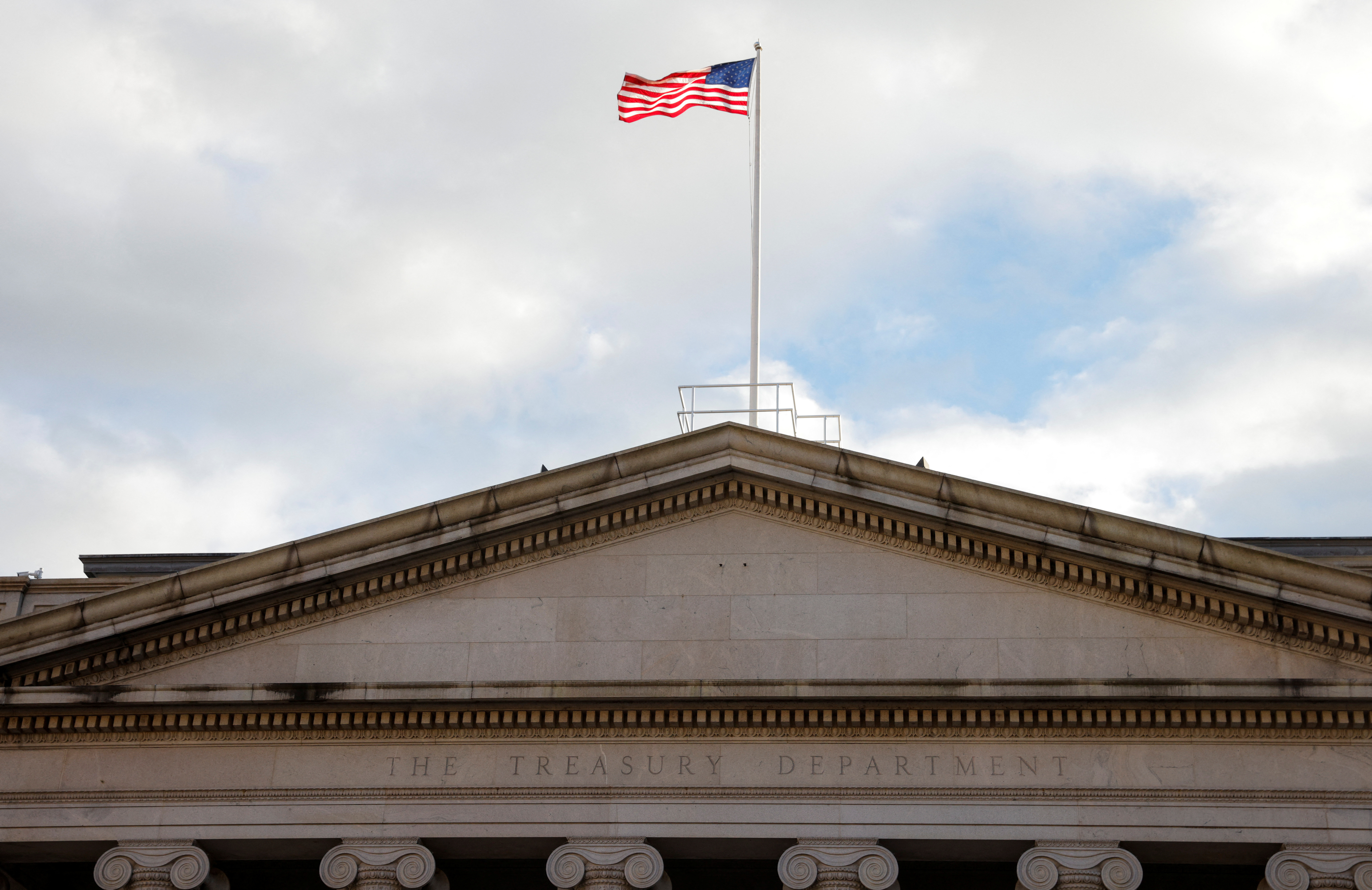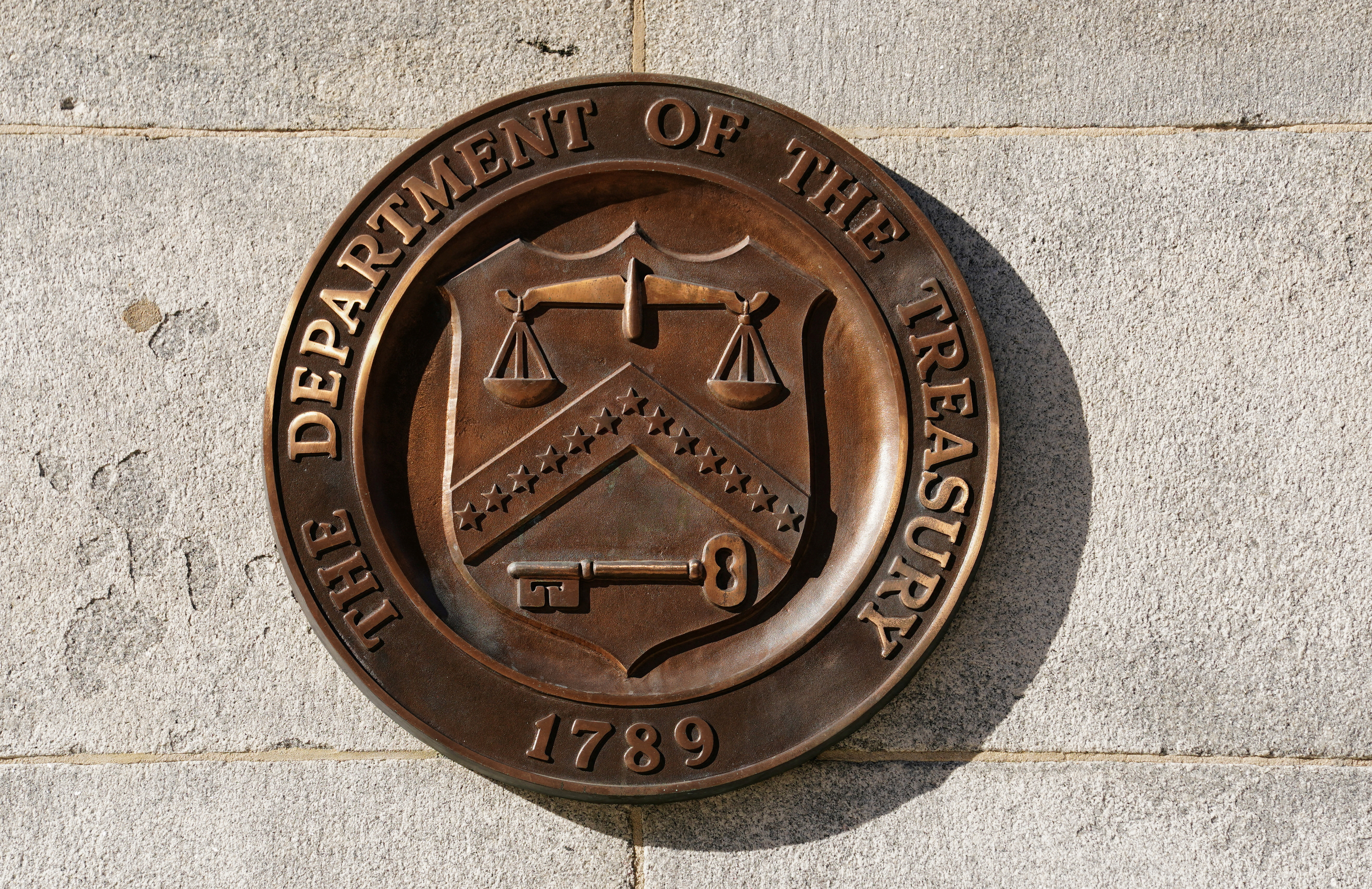Harmeet Dhillon was inside Kari Lake’s “war room” in Scottsdale, Ariz., when her cell phone rang. On the other end of the line was Ronna McDaniel, the chairwoman of the Republican National Committee. It was a few days after the midterm elections in which Republicans significantly underperformed expectations. Votes were still being tallied in Arizona, where Dhillon was working as an attorney for Lake, the GOP candidate for governor who would eventually lose by 17,000 votes but refuse to concede.
Dhillon stepped outside the conference room to escape the cacophony of campaign aides who were working the phones and crunching numbers.
[time-brightcove not-tgx=”true”]
McDaniel told Dhillon that she was “tired” after six years of leading the GOP, according to Dhillon. (McDaniel dismissed this part of Dhillon’s recollection as a “false aside from me being tired of nonstop travel.”) “It’s been rough,” she told her. “Yeah, the election was pretty rough,” Dhillon said, sympathetically.
McDaniel went on to say she didn’t want to run again for the leadership post but didn’t think there was anyone else who could do the job, according to Dhillon. McDaniel wanted Dhillon’s advice, which seemed to Dhillon like a roundabout way of seeking her support for another term. Dhillon, an RNC member from California, asked to table the conversation until after the Georgia Senate runoff. “I’m not prepared to commit to anybody,” Dhillon told her. “I think it’s been a disappointing election year. And it’s been disappointing for the last two cycles, too.”
A week later, McDaniel announced she was running for re-election, saying she had nearly 100 of the 168 RNC committee members pledging to back her. Dhillon was flabbergasted. Why would so many Republicans support a leader who had presided over so many losses?
She soon began to take calls with fellow RNC members who wanted a change. Some urged Dhillon to run. They wanted her to run in 2020, too, around the time when she was a regular on Fox News defending Donald Trump’s election challenges based on unsubstantiated claims of fraud. So she began to reach out to other friends and colleagues in the conservative movement for their thoughts. One by one, she says, they encouraged her to mount a bid. On Dec. 5, the night before the Georgia runoff—which Herschel Walker, the Republican candidate, would lose by nearly 100,000 votes—she went on Tucker Carlson’s show to announce her candidacy. “Republicans are tired of losing,” she said. “We need to radically reshape our leadership to win.”
Dhillon, it turns out, was pushing on an open door.
Since Dhillon jumped into the race, Republican leaders have been privately acknowledging that she has a shot, even if McDaniel—a consummate GOP insider who is the niece of Utah Senator Mitt Romney—remains the favorite. Amid widespread internal turmoil over the party’s direction and the role Trump should play in it, at least five state Republican parties, including Arizona and Texas, have passed resolutions of no confidence in McDaniel. And a handful of others, such as Washington, Nebraska, Tennessee, and Wyoming, have endorsed Dhillon. So, too, have a coterie of GOP members of Congress and right-wing media personalities. Dhillon, 54, is “respected by the people who don’t support Trump and respected by the people who do support Trump,” says an RNC source who asked for anonymity to discuss the hotly contested race.
On one end of the spectrum are influencers like Charlie Kirk, the pro-Trump firebrand who founded the conservative advocacy group Turning Point USA. He says he likes McDaniel personally but thinks it’s time for a new GOP leader. “I’m a huge college football fan,” Kirk tells TIME. “I think that there’s something rather commonsensical about what happens in college football: If you don’t win, you get fired. And I think that’s the way that we should judge the RNC. No one’s entitled to be chair of the RNC.” Several of his comrades who are committee members, like Sigal Chattah of Nevada and Kelli Ward and Tyler Bowyer of Arizona, who’s Turning Point’s chief operating officer, are backing Dhillon.
On the other end are mainstay figures like Bill Palatucci, a longtime RNC committee member from New Jersey who’s a close ally of Chris Christie and a Trump skeptic. He recently came out in support of Dhillon. “I’ve been really impressed with Harmeet’s campaign and her ability to flip members away from Ronna,” he tells TIME. He’s joined by RNC members like Robin Armstrong of Texas, Morton Blackwell of Virginia, and Oscar Brock of Tennessee, another Trump dissenter.
The race is unfolding as Trump vies to be the party’s presidential nominee in 2024 and remain at the center of the GOP’s orbit for years to come. Both candidates have ties to the ex-President. Dhillon has been a Trump attorney on two cases and a prominent supporter of his in the last two elections. Yet Trump handpicked McDaniel to run the RNC in 2016. She also participated in a phone call in which Trump and lawyer John Eastman asked the RNC to help recruit phony electors ahead of Jan. 6, 2021.

Carlos Barria—ReutersPresident Donald Trump listens as attorney Harmeet Dhillon addresses his social media summit with prominent conservative social media figures in the East Room of the White House in Washington, D.C., on July 11, 2019.
Leading up to the RNC’s winter meeting starting on Wednesday, which will culminate with members selecting the next chair by secret ballot on Friday, Dhillon has made a play to court RNC committee members of all ideological stripes. She bills herself as the person “most reliably likely to honor a pledge of neutrality” as the party’s voters decide whether Trump should again be their nominee.
“I would not have been installed by any particular President, for example,” Dhillon says. “That’s an important difference.”
Harmeet Dhillon immigrated to the United States with her parents from India when she was two years old. Her father was a doctor who no longer wanted to live under a “Soviet-client state,” as Dhillon puts it.
After finishing his medical training at the Albert Einstein College of Medicine in the Bronx, Dhillon’s father settled the family in rural North Carolina. Once her parents became U.S. citizens, they registered as Republicans and quickly became politically active. They held fundraisers in their home for Senator Jesse Helms and other GOP candidates, exposing a young Dhillon to conservative politics at an early age. She recalls picking a fight over the 1976 election in the lunch line with another student whose parents supported Jimmy Carter (Dhillon’s supported Gerald Ford) and then getting spanked by a teacher.
The family’s conservatism was tied to their Sikh faith, says Dhillon, whose parents believed that Republicans shared their social values and were more likely to protect religious freedoms. They sent Dhillon to a public boarding school, the North Carolina School of Science and Mathematics, where she became enamored with Russian literature, finding particular resonance in the works of Aleksandr Solzhenitsyn, a Soviet dissident and critic of communism.
She graduated from high school at the age of 16 and enrolled at Dartmouth College, where she became the editor-in-chief of the school’s conservative newspaper, The Dartmouth Review. (Her predecessors in that role included Dinesh D’Souza and Laura Ingraham.) Her first job after graduating was at the influential conservative think tank the Heritage Foundation. “We were in the years following the Reagan Revolution,” she says, “a very heady time for conservative ideas and politics, and I got to meet some of the leading figures in the movement.”
During that time, Dhillon wrote op-eds in The Washington Post and The Wall Street Journal before she was accepted into the University of Virginia School of Law. (After leaving the Heritage Foundation, Tucker Carlson replaced her and took over her desk.) At UVA, she became president of the nation’s largest chapter of the conservative Federalist Society, which was relatively new at the time, and was an editor of the Virginia Law Review. After clerking for a federal judge, she worked in New York and London before eventually joining a law firm in San Francisco.
Her career path veered after September 11, 2001, which she called a “watershed moment” for her. Dhillon recoiled when Congress passed the Patriot Act, a law that gave the government substantial new powers in the name of fighting terrorism; she thought that Americans’ civil liberties were being trampled upon. Particularly jarring to her was how Sikh Americans were increasingly finding themselves the targets of hate crimes and racial and religious profiling. Studies showed they were regularly subjected to secondary screenings at airports across the country. That galvanized the Reaganite conservative to become a board member of the Northern California chapter of the left-leaning American Civil Liberties Union. “It wasn’t a political issue at all,” she says. “It was a civil rights issue.” The non-profit organization, she adds, was “drawing attention to both attacks and racial profiling against Sikhs and, more importantly, the Patriot Act.”
She says she also began representing Sikhs pro-bono from her corporate law firm, but it wasn’t popular with her employer, and she was constrained in how many of those cases she could take on in a big law setting.
She soon broke out on her own, founding the Dhillon Law Firm in 2006, based out of San Francisco, which mainly represents conservative clients. Around that time, she got back involved in politics, joining the board of the San Francisco GOP, and eventually becoming vice chair of the California GOP. She was elected to the Republican National Committee in 2016, and initially supported Ted Cruz for President. “The day that Ted Cruz dropped out of the presidential race, I switched my name over to the Trump slate and they took me,” she says. Later that summer, Dhillon delivered an opening prayer for the second day of the convention.
Dhillon became a Trump supporter, co-chairing or joining a slew of pro-Trump organizations, including Women for Trump, Sikhs for Trump, and Lawyers for Trump. During the Trump years, she also founded a conservative non-profit, the Center for American Liberties, and became chair of the Republican National Lawyers Association. After the 2020 election, she defended Trump’s legal efforts in the press, telling Fox Business the day after the election: “We’re waiting for the United States Supreme Court—of which the President has nominated three justices—to step in and do something.” The high court later rejected hearing Trump’s election challenge cases.
Dhillon’s profile grew as a frequent guest in right-wing media, but she reached new levels of prominence during the pandemic, when she waged a litigious battle against Covid restrictions.
“I probably filed the most lawsuits of any lawyer in America to challenge government overreach on COVID restrictions,” she says. Three of those cases reached the Supreme Court. Two of the cases challenged California Gov. Gavin Newsom’s executive orders limiting attendance at places of worship, and another sued the state over restricting the size of gatherings for at-home religious exercises.
Dhillon later represented Trump as an attorney in two cases—one involving the pornographic film actress Stormy Daniels, who filed a lawsuit against the former President in California, and another against the Jan. 6 Committee’s subpoena for Trump to testify about his role in the Capitol attack. Daniels lost her suit and was ordered to pay Trump $300,000 in legal fees. Trump’s subpoena was eventually withdrawn after the panel disbanded.
Dhillon’s entry into the RNC race came just after she was Lake’s lawyer for election week operations—a moment that put her back in the national spotlight before making her decision to take a shot at leading the entire Republican Party.
Dhillon’s bid for RNC chair has set up an intense battle between her and McDaniel, in the first contested RNC chair election in 12 years. (MyPillow CEO Mike Lindell, an ardent Trump supporter and prolific spreader of baseless voter fraud claims, is running a campaign as well). The RNC is mostly responsible for messaging and branding, fundraising, and commissioning polls and voter surveys. It has only one reason to exist: to help Republicans win elections.
According to Palatucci, the RNC committee member, there are two major camps inside the RNC. One group thinks the GOP’s disastrous results over the last two elections are Trump’s fault. The other puts some blame on McDaniel.
Dhillon’s campaign is anchored on winning over that second camp while peeling off members of the first. Her bid has focused on three main proposals.
The first is to revamp the RNC’s elections operations. She wants to build an infrastructure to compete with Democrats on chasing ballots during early voting, particularly with vote by mail, an area where Republicans have fallen behind since 2020, when Trump demonized mail ballots as rife with fraud. And she wants to create a legal unit inside the organization to engage more aggressively in what she calls “lawfare”—targeted lawsuits on everything from redistricting to voting laws. The second is “raising and spending our money efficiently and responsibly,” she says, which includes regular audits of RNC vendors and cutting “luxury spending” to allocate more funding toward winning elections. The third is to transform the RNC’s messaging. Her pitch to committee members is that she can orchestrate “clear and persuasive communications,” and implement tactics the party hasn’t seized on, such as “recruiting social media influencers to attract the youth vote.” She also says she wants to decentralize the RNC out of Washington, D.C., establishing a handful of regional headquarters in battleground states throughout the country.
Those ideas have endeared her to some of the nation’s most influential right-wing voices, who especially like the combination of her conservative bona fides and legal background. “I think that Marc Elias is running circles around us,” Kirk tells TIME, referring to the prominent Democratic election lawyer. “I think that we need somebody who understands the legal system and is able to position the RNC to be successful in those kinds of arenas.”
And while Dhillon has long been a critic of mail-in balloting—she once called for eliminating vote by mail entirely—she now wants the Republican Party to take advantage of the system to reach voters where it’s available. “If it’s the law, it’s stupid not to do it, in my opinion,” she says.
McDaniel has countered Dhillon’s pledges by arguing the RNC already does the things she’s calling for. “I am the most litigious RNC Chair in our Party’s history,” she tells TIME. “Just last cycle, we filed over 80 lawsuits to protect the integrity of our ballots.” She also says the RNC has built field operations in every state and territory, which conduct outreach to Republican absentee voters, and has created community centers under her tenure designed to reach GOP voters of color.

Allen J. Schaben—Los Angeles Times/Getty ImagesRepublican National Committee Chairwoman Ronna McDaniel speaks at a rally ahead of the November elections in Newport Beach, Calif., on Sept. 26, 2022.
The primary reason for the party’s losses in 2022, she emphasized, was the quality of the candidates and Republican infighting. “Our party needs to address ticket splitting, which is why I’ve formed the Post-Election Analysis Committee to address why some voters chose one Republican on the ballot, and not the other,” McDaniel says.
One RNC committee member said that Dhillon’s critiques of the party’s leadership can be alienating to some. “Harmeet brings up lots of good, valid concerns about the direction of the RNC,” says the member, who requested anonymity. “But I think the message and tactics have been too harsh. And some of the people around her are very harsh, very divisive.”
“You know what’s divisive?” Dhillon told me in response. “Losing elections repeatedly and asking to be reelected.” Still, she addressed those concerns in an email she sent to all of the committee members on Monday, making the case that they needed to take a leap into the unknown if they want to win elections again. “Making a change to RNC leadership requires members to get out of their comfort zones,” she wrote.
Dhillon and her allies acknowledge that McDaniel is not the sole reason for the red wave that never materialized, but they argue that she doesn’t deserve a fourth term after three disappointing election cycles. The lawsuits and the field operation mean little, they say, if Republicans aren’t winning. “That’s activity, not results,” Kirk says. “We judge you based on whether or not we get more points than the bad guys. That’s it.”
The conventional Washington wisdom suggests that McDaniel, as the incumbent, is in the driver’s seat. But nothing is set in stone. “I think Ronna has been guilty of the D.C. trap of inevitability,” says Reed Galen, a former Republican operative and co-founder of the Never Trump group the Lincoln Project. “‘I’ve been doing this, I’m going to keep doing it. No one can get in my way.’”
There are other signs of McDaniel’s vulnerability. Some of her allies have waged a whisper campaign raising concerns about Dhillon’s Sikh faith. McDaniel condemned the attacks, citing her own minority faith as a Mormon, but Dhillon countered that she didn’t go far enough because she didn’t remove one of those allies as chair of the RNC’s Faith Advisory Board. “So apparently, it’s okay,” she says.
RNC veteran Palatucci argues that the election’s secret ballot makes the situation precarious for McDaniel: “The members of the RNC are very experienced pols, in large part, and they are very adept at looking you in the eye and saying, ‘I love you,’ and then turning around the secret ballot and slitting your throat.”
It’s in that spirit that Dhillon insists she can pull off the upset. In recent days, she sent out a 90-day transition plan, obtained by TIME, that called for creating a Department of Elections Operations that will be tasked with boosting GOP turnout during early voting, and finding a new fundraising model ahead of 2024, when the RNC cannot rely on Trump’s name during the primary process. She also promised to give up her law firm and non-profit and move to the Washington, D.C. area with her husband if elected.
The moment of truth will be this Friday, when Dhillon is banking on Republican dissatisfaction over the last several election cycles to spur the clubby group of RNC members to rethink who should be in charge of the party apparatus. But even then, McDaniel could still win—unless Dhillon convinces enough of them that she is the right change agent at the right time.
“The time for feeling comfortable about where we are right now is over,” Dhillon says. “We should not be comfortable with where we are right now. It is not a comfortable place to be.”








